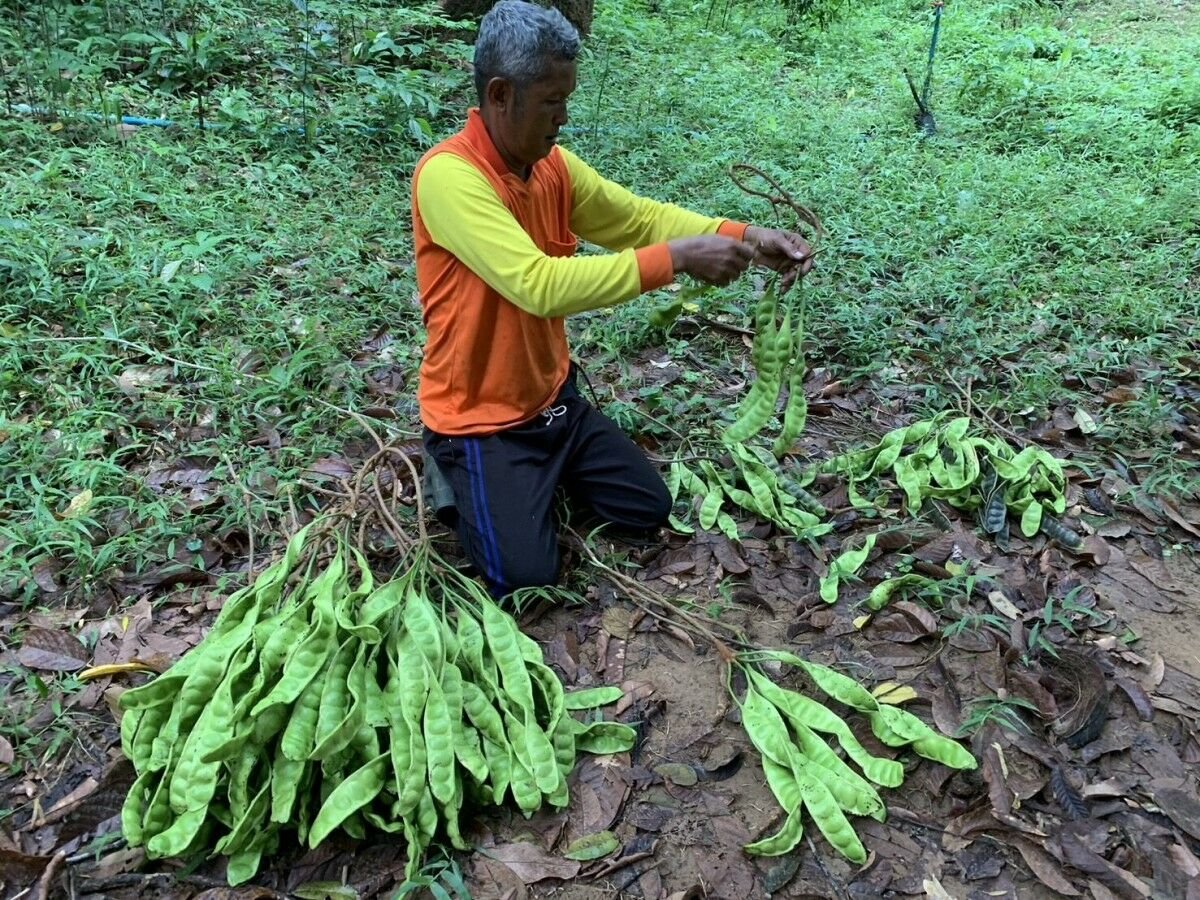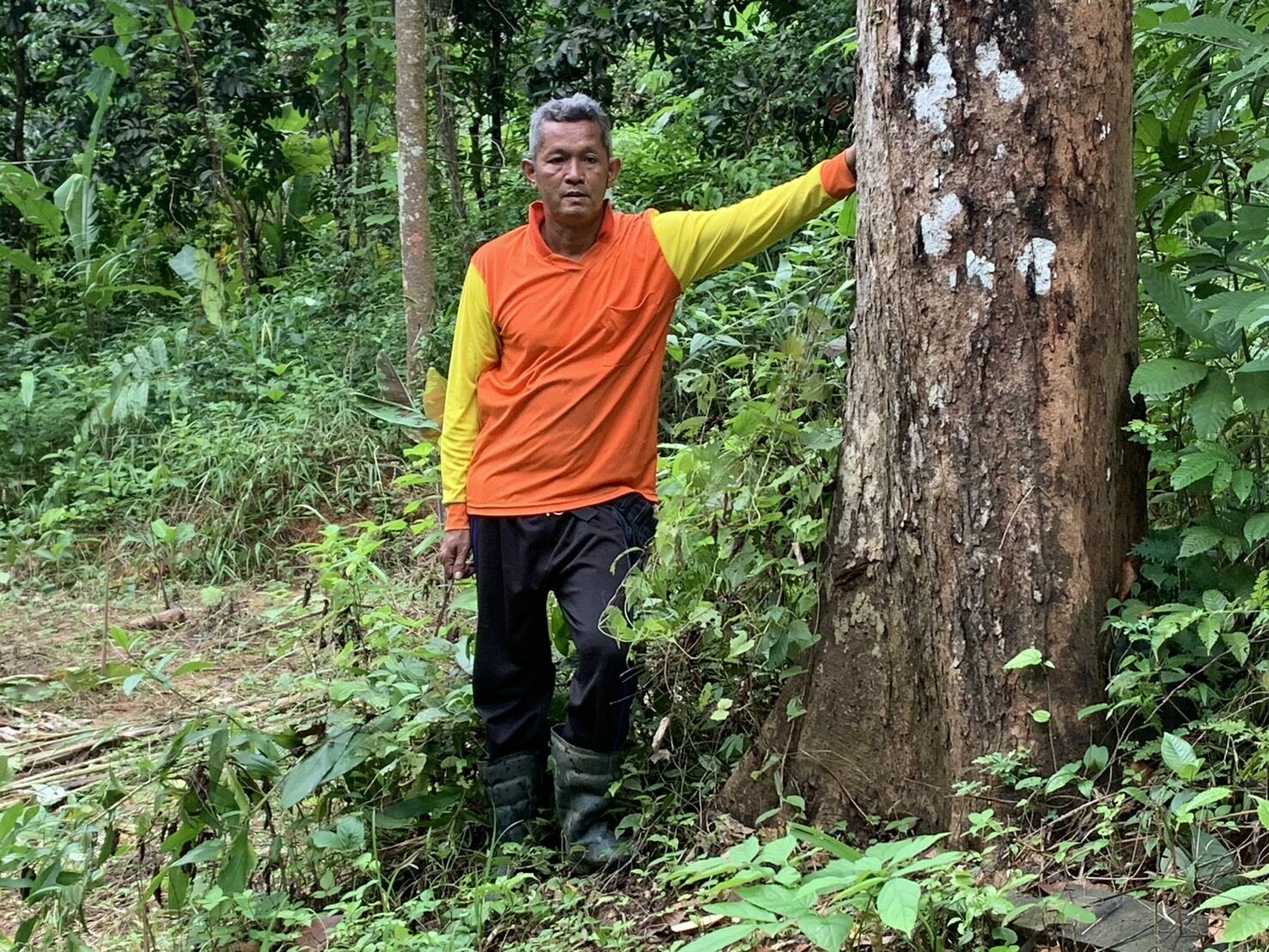Century-old parkia speciosa tree generates 40,000 baht annually

A century-old parkia speciosa tree in Trang province has captivated the market due to its large, long pods and superior taste, generating up to 40,000 baht annually from a single tree.
At Suan Ta Chan Tonmai Panpi in Trang’s Na Yong district, 53 year old Satit Ramna hired locals to climb and harvest the pods from his four 100-year-old parkia speciosa trees. Despite a prolonged drought lasting over three months, each tree is expected to yield between 800 and 1,000 pods this year, slightly less than usual. The pods, priced between 3.50 and 5 baht each, remain in high demand due to their quality—long, large, and as big as a 5-baht coin.
The unique taste of these parkia speciosa pods, known locally as sato, sets them apart. Satit guarantees their flavour is superior to other varieties, boasting a milder aroma and a rich, nutty taste.
The soil in the Na Yong district, enriched with minerals from the nearby Banthat mountain range, contributes to the exceptional quality of the pods. This unique growing condition results in crisp, slightly bitter pods that customers eagerly pre-order each year, generating an annual income of 30,000 to 40,000 baht.
Historically, Satit’s ancestors brought the parkia speciosa trees from the Banthat mountain range, and they have been cultivated for three generations. Despite the passage of time, only four trees remain, but their reputation continues to draw customers. These trees produce pods almost year-round, even outside the typical growing season, ensuring a steady supply.
Parkia speciosa comes in two varieties: sato khao and sato dan. The former is preferred for its softer texture and milder aroma, making it ideal for eating raw with chilli paste, in curries, or various other dishes. The latter, while larger, has a tougher texture and stronger smell, making it less popular.
Health benefits
The pods are not only a culinary favourite in southern Thailand but also possess medicinal properties. They are believed to slow down ageing, reduce wrinkles, and improve eye health due to their calcium and phosphorus content, which also benefits bones and teeth.
Additionally, they help improve blood circulation and reduce anaemia. Excess pods are often pickled and sold online across the country.
Satit reports that this year, the trees have produced pods in batches of 50 to 100 at a time. Some batches are ready for harvest while the next batch is just flowering.
Local vendors buy the pods for 3.50 to 5 baht each. Satit proudly claims that the unique climate and mountain soil of the Na Yong district contributes to the distinctive taste of his parkia speciosa.
He has a loyal customer base in Phetchaburi, where one customer orders around 3,000 pods annually, refusing to eat any other variety. When the pods are harvested, vendors quickly buy them all, ensuring none go to waste. Each of the four trees produces approximately 3,000 pods per year, highlighting their impressive productivity, reported KhaoSod.

Latest Thailand News
Follow The Thaiger on Google News:


























